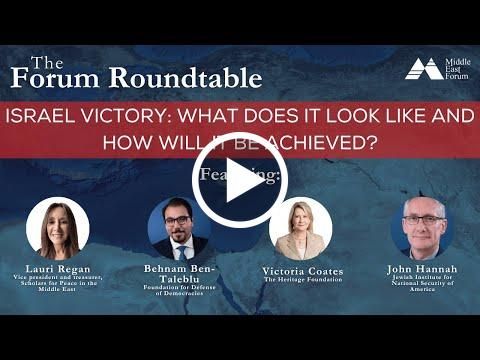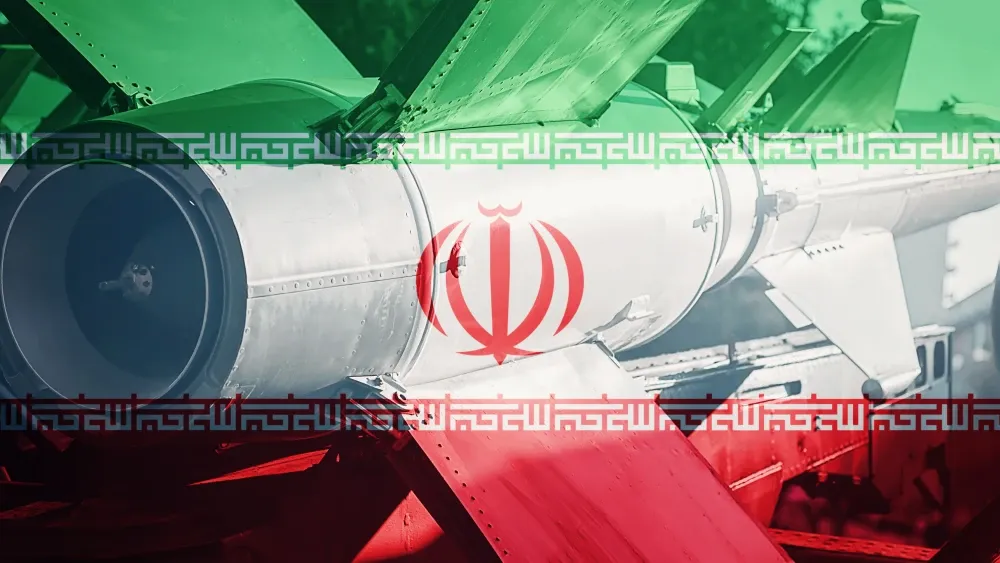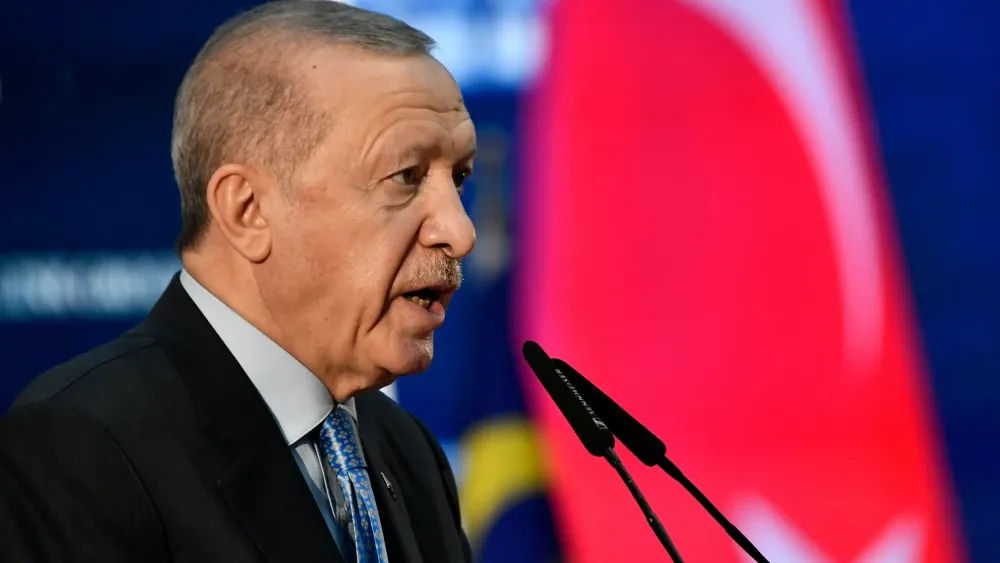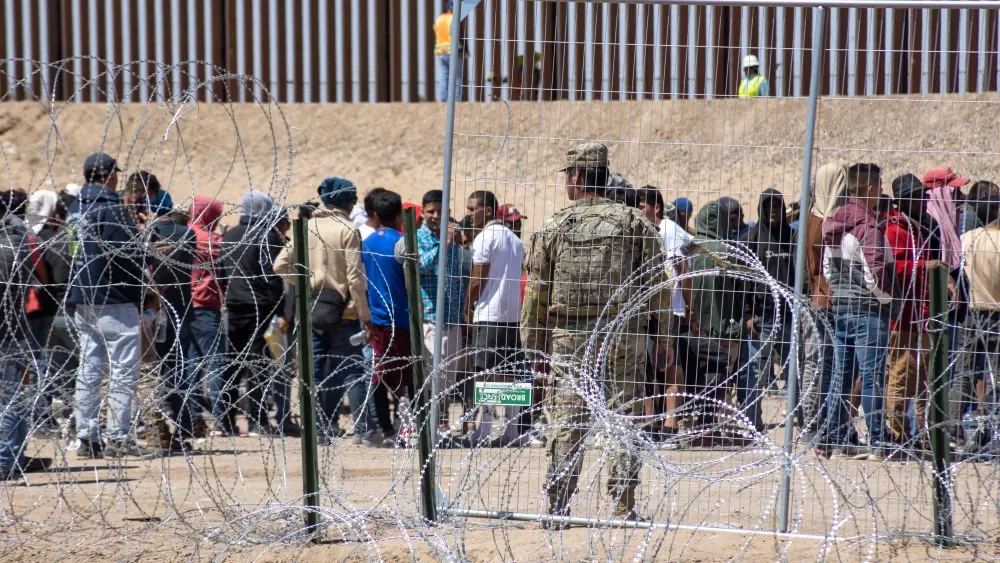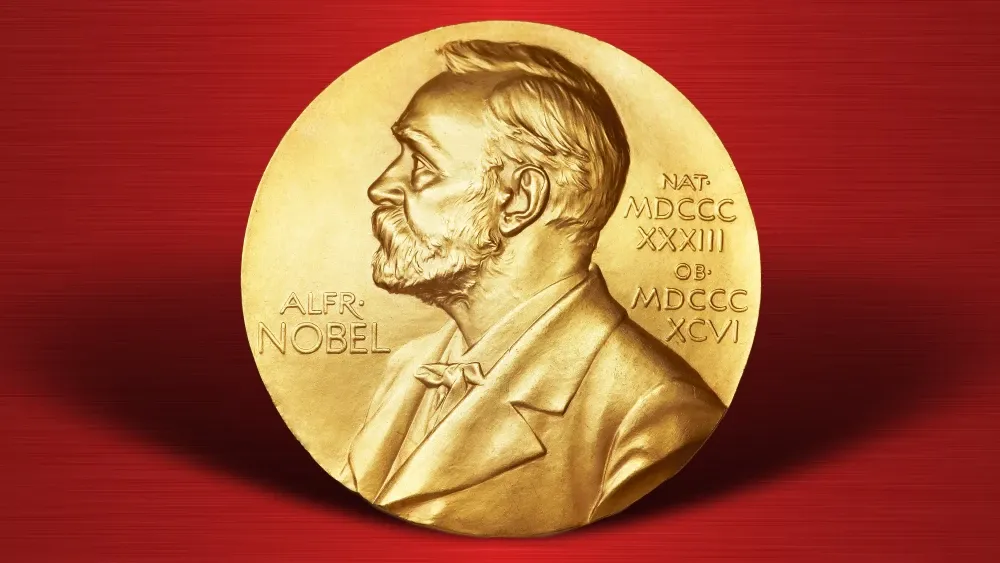| ||
 | ||
| Israel-Iran War: Paused, Not Ended; Iran & the U.S. Border; Skip the Nobel Peace Prize By Winfield Myers ● Jun 27, 2025 Smart Brevity® count: 7.5 mins...1949 words Saeid Golkar reminds us that because the destruction of Israel is a pillar of the Iranian revolution, “the war between Iran and Israel has paused but not ended.” “Only a comprehensive agreement that fuses security guarantees with political and ideological reforms,” he writes, “can break the cycle of confrontation.” Benjamin Weinthal reports that the intelligence services of Germany and Austria, among others, found that Iran has long sought the components and knowledge necessary to assemble both nuclear and chemical weapons. Abdullah Bozkurt has the goods on an Iranian Quds Force general who, prior to his death in a June 21 precision Israeli strike in Western Iran, had operated openly in Turkey thanks to the protection of President Erdoğan. Gil Guerra gives us plenty of reasons to worry about the Iranians who have already crossed America’s southern border, plus those yet to arrive. And Michael Rubin has some sensible advice for U.S. leaders seeking the Nobel Peace Prize: serve the American people rather than striving to assuage five random Norwegian liberals. | ||
ICYMI – “The Forum Roundtable: The U.S. and Israel – A Team Like No Team Before”As Israel’s battle with the Islamic Republic of Iran continues in its new phase of direct conflict after four decades of proxy wars, numerous questions remain. How is Israel defining victory and what means does it have to attain its goals? What role with the U.S. play militarily, diplomatically and politically? What does defeat look like for Iran and what does the future hold for its citizens? What does all of this mean for the Middle East more broadly, including new alliances and the prospects for achieving a final and lasting peace in the region? To help parse through all of these issues from the perspective of the U.S., Israel and Iran are three renowned experts with important insights to share: Victoria Coates, author of The Battle for the Jewish State: How Israel - and America - Can Win and vice president of the Kathryn and Shelby Cullom Davis Institute for National Security and Foreign Policy at The Heritage Foundation; John Hannah, Randi & Charles Wax Senior Fellow at the Jewish Institute for National Security of America’s Gemunder Center for Defense and Strategy; and Behnam Ben Taleblu, Iran Program senior director and senior fellow at the Foundation for Defense of Democracies, and Lauri Regan, vice president and treasurer at Scholars for Peace in the Middle East. To watch the full discussion, click here. | ||
The Iran-Israel War Was Short. The Next One Will Not BeThe war between Iran and Israel paused with a ceasefire on June 24, following decisive Israeli strikes on Iran’s nuclear and military sites on June 13 and strategic U.S. involvement. But it has not ended. Why it matters: This is no ordinary conflict; it's roots are ideological (supporting the Palestinians and the destruction of Israel), which guarantees that more conflict lies ahead.
Between the lines: Despite severe losses, Iran's leadership doubles down, defiantly halting cooperation with the U.N. nuclear watchdog and pushing forward with its nuclear and missile agendas.
The bottom line: Achieving lasting peace demands confronting the ideological core of this conflict head-on, with an urgent call for international intervention to enforce Iran's political and ideological transformation.
To read the full article, click here. | ||
Watch: “Iran on the Precipice?” Gregg Roman on the Ed Morrissey ShowThe Islamic Republic's regime has been battered in both military and political terms. Is this the moment when Iran implodes -- or frees itself from subjugation? Gregg Roman of the Middle East Forum lays out the competing interests, discusses how organic regime change could happen, and who the players are inside and outside Iran that would need to coalesce to make it happen. To watch the full interview, click here. | ||
European Intelligence Reports Outline Iran’s Illicit Nuclear Weapons and Missile ProgramsAs Israel targeted Iranian military sites, a German intelligence report from Lower Saxony revealed Iran's 2024 efforts to secure technology for weapons of mass destruction. Why it matters: This report highlights Iran's ongoing nuclear and chemical weapons ambitions, often overlooked by major media outlets.
The backdrop: Reports from Germany and Austria contradict U.S. intelligence, which downplays Iran's nuclear activities.
The bottom line: Often, anti-war progressives advance the calumny that opponents of Iran’s nuclear program twist intelligence to justify action. Ironically, it appears the real politicization of intelligence occurs in efforts to exculpate the Iranian regime from its illegal and well-documented ambitions.
To read the full article, click here. | ||
Listen: Michael Rubin Discusses Iranian Sleeper Cells on the Brian Kilmeade ShowMEF director of policy analysis Michael Rubin joins the Brian Kilmeade Show on Fox News Radio to discuss the looming threat of Iranian “sleeper cells” activating inside of the United States in response to the American strikes on Iranian nuclear facilities. To listen to the full segment on Fox News Radio, click here. | ||
Israel Kills Iranian Quds Force General Once Protected by President Erdoğan in TurkeyBehnam Shahriyari, a notorious IRGC Quds Force general, was killed in a precision Israeli airstrike in western Iran on June 21, marking the end of his role in funding and arming terrorist proxies. Why it matters: Shahriyari's operations destabilized the Middle East, with Turkey providing him cover to operate freely.
The intrigue: Turkish investigations revealed Shahriyari's deep ties with high-level officials, including private meetings with Erdoğan.
What's next: It’s no surprise that the Erdoğan government sided with Iran during its recent conflict with Israel, voicing strong support for the theocratic regime while harshly criticizing Israel over its strikes on Iran’s nuclear and military facilities.
To read the full article, click here. | ||
Help the Iranian People Resist Iran's RegimeJoin the next phase of the Middle East Forum’s Maximum Pressure Campaign Series by asking Congress to pass the Maximum Support Act. Americans must rally behind the Iranian people after the 12-Day War, where U.S. and Israeli forces dismantled Iran’s nuclear program. Now, we must help Iranians forge a democratic future, free from their oppressive regime. Fill out the form to send emails to your House member and senators urging them to sponsor and pass H.R. 2614 - the Maximum Support Act. The Maximum Support Act is a bipartisan bill that empowers Iranians by ensuring internet freedom with Virtual Private Networks, satellite-to-cell tech, digital eSIMs, and anti-surveillance tools to bypass regime censorship. It also establishes a strikers’ fund, using seized regime assets to support workers striking against oppression, and provides humanitarian aid and medical supplies to protesters. This legislation strengthens Iran’s grassroots movement for democracy while countering the regime’s global repression. You can help make this happen! Urge Congress to pass the Maximum Support Act by filling out the form and clicking submit to send emails to your Congress members. Act now to support a free, democratic Iran and amplify the voices of its people! To tell Congress to pass the Maximum Support Act, click here. | ||
Could Iran Infiltrate the U.S.-Mexico Border?Since 2020, U.S. Customs and Border Protection has encountered approximately 1,740 Iranian nationals at the U.S.-Mexico border, a stark increase from the 90 encounters recorded from 2000 to 2019. Why it matters: The relatively low number of Iranian crossings—compared to some other nationalities—belies potential security risks. The most troubling aspect of illegal Iranian migration is the continued existence of sophisticated Iranian passport forgery rings.
The intrigue: Iranian migration patterns reveal unique vulnerabilities that Tehran might exploit, especially amidst ongoing U.S.-Iran tensions.
What's next: With the 2026 World Cup across North America approaching, the surge in visa processing could present vulnerabilities. The Cup presents a particularly attractive target window.
To read the full article, click here. | ||
U.S. Leaders Should Stop Seeking the Nobel Peace PrizeEvery congressperson envisions a senator in the mirror, and every senator sees a president. For many, the ultimate accolade is the Nobel Peace Prize. Why it matters: Unlike other Nobel categories, the Peace Prize is awarded more on aspirations than achievements, serving as a tool for virtue-signaling.
The bottom line: The Nobel Peace Prize often aligns with Norwegian liberal views, undermining its credibility and purpose.
What's next: Perhaps for the sake of U.S. national security, it is time to demand that all aspirants to office publicly declare they will neither seek nor accept a Nobel Prize.
To read the full article, click here. | ||
| Thank you for reading our continuing coverage of war and its aftermath. As events unfold, count on the Middle East Forum to bring you continuing updates and analyses. Please share this with a friend and let us know what you think of our ongoing coverage. Thank you, Winfield Myers | ||
| Was this edition useful? Your email will be recorded and shared with the sender | ||
| Powered by | ||
| ||

